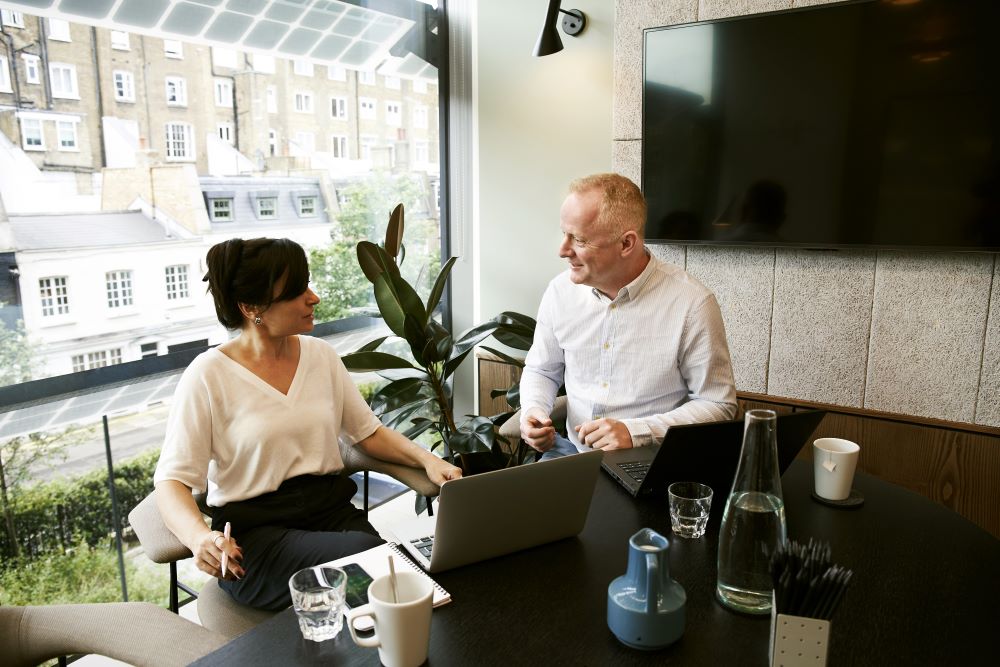
The Essential Guide to Self-Coaching for Effective Communication
Effective communication is a fundamental tool for personal and professional success. Alma Jansen, life and business coach and the founder of self-coaching platform selfom.com, astutely said, “The art of communication is the language of leadership.” However, effective communication is not an inherent skill for many of us. It requires practice and fine-tuning. That’s where self-coaching comes into play.
Understanding Effective Communication
Effective communication is the ability to convey information, emotions, and ideas clearly and empathetically. As George Bernard Shaw noted, “The single biggest problem in communication is the illusion that it has taken place.” It includes verbal and non-verbal communication, active listening, and the ability to tailor your message to your audience.
Jansen adds to this definition, saying, “Communication isn’t just about speaking; it’s about listening, understanding, and creating a connection.”
The Role of Self-Coaching in Effective Communication
Self-coaching can be a potent tool in developing effective communication skills. “The power of self-coaching lies in its ability to give us control over our development,” says Jansen. “In the realm of communication, this means becoming more aware of how we convey and interpret messages.”
Steps to Enhance Communication Through Self-Coaching
There are several key steps you can follow to improve your communication skills through self-coaching.
1. Self-Awareness
This is the first step in any self-coaching journey. Jansen explains, “You can’t change what you don’t recognize. Understanding your communication style and how it impacts others is the first step toward improvement.”
2. Goal Setting
After identifying the areas you need to improve, you need to set goals. Tony Robbins, an influential life and business strategist, once said, “Setting goals is the first step in turning the invisible into the visible.”
3. Develop an Action Plan
Once you’ve set your goals, create a roadmap to achieve them. Jansen asserts, “Your action plan is your guide. It’s the tool that turns your goals into realities.”
4. Practice
The saying “practice makes perfect” holds true for communication skills. Dale Carnegie, author of “How to Win Friends and Influence People,” wrote, “Only knowledge that is used sticks in your mind.” Therefore, practice your communication skills regularly.
5. Seek Feedback and Adapt
Gather feedback from those around you and adapt accordingly. Jansen advises, “Feedback is a gift. It provides a mirror that reflects our strengths and areas for improvement.”
The Power of Self-Coaching in Communication
Mastering communication through self-coaching is a transformative journey. Not only does it enhance your personal and professional relationships, but it also leads to improved leadership skills and overall success.
As Julian Treasure, a renowned sound and communication expert, stated in his popular TED Talk, “Conscious listening creates understanding.” This consciousness and understanding, powered by self-coaching, paves the way for effective communication.
In closing, Jansen offers this wise observation, “Through self-coaching, we learn to listen to ourselves and others, articulate with clarity, and build bridges through communication. We become not just better communicators, but better leaders and individuals.”
With self-coaching, the journey to effective communication becomes a path of personal growth and realization. It is a testament to the power of self-coaching in unlocking our potential and leading us to become better versions of ourselves. As we continue to grow and learn, we unlock our true potential, becoming leaders and communicators who can truly make a difference in the world around us.
Enhancing Communication Skills with Self-Coaching Techniques
The journey to mastering communication through self-coaching doesn’t end with setting goals and creating an action plan. It’s an ongoing process of learning, adapting, and growing. Here are some techniques to consider for your self-coaching journey:
Mindfulness
The practice of mindfulness helps to cultivate presence and active listening – key elements in effective communication. Jansen asserts, “When we’re truly present in a conversation, we’re able to fully engage and respond more effectively.”
Empathy
Cultivating empathy allows you to understand others’ perspectives better and communicate more effectively. As Jansen puts it, “Empathy allows us to connect on a deeper level, enabling more meaningful conversations.”
Assertiveness
Assertiveness, or the ability to express your thoughts, feelings, and needs in a respectful way, is a critical component of effective communication. Jansen suggests, “Assertiveness is about being heard, but also about respect and understanding for the other person’s perspective.”
Continuous Learning
In order to continuously improve your communication skills, it’s important to engage in lifelong learning. Read books, attend workshops, or take online courses on communication. As Brian Tracy, a leading authority on personal and business success, wrote in “No Excuses! The Power of Self-Discipline”, “Continuous learning is the minimum requirement for success in any field.”
Reflection
Take time to reflect on your communication encounters. Consider what went well and what you could improve upon. Jansen advises, “Reflection is an important part of growth. It allows us to learn from our experiences and make better choices in the future.”
The Impact of Effective Communication through Self-Coaching
Improving your communication skills through self-coaching can have profound effects on both your personal and professional life. It can enhance your relationships, boost your career prospects, and increase your overall confidence.
In the words of Jansen, “When we become effective communicators, we unlock doors to understanding, collaboration, and success.”
Mastering Communication through Self-Coaching
To sum up, mastering communication is a continuous journey, one that requires self-awareness, practice, and resilience. The process of self-coaching is a guiding light on this journey, illuminating the path towards becoming a proficient communicator.
“The power of self-coaching lies in its capacity to inspire change and growth,” Jansen concludes. “As we coach ourselves to become better communicators, we’re not just improving our ability to express and understand. We’re improving our overall quality of life.”
By embracing self-coaching, we can all learn to communicate more effectively and unlock our full potential. We become not just better communicators, but better leaders, better collaborators, and better individuals – all equipped to navigate the world with confidence and grace.





